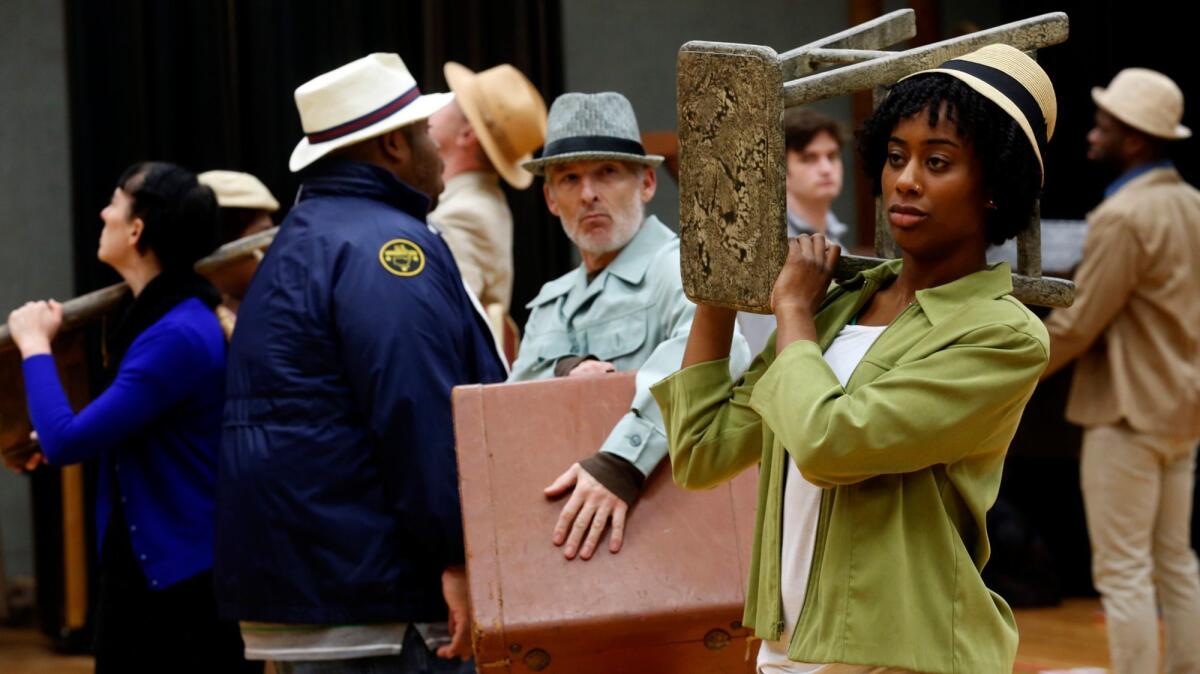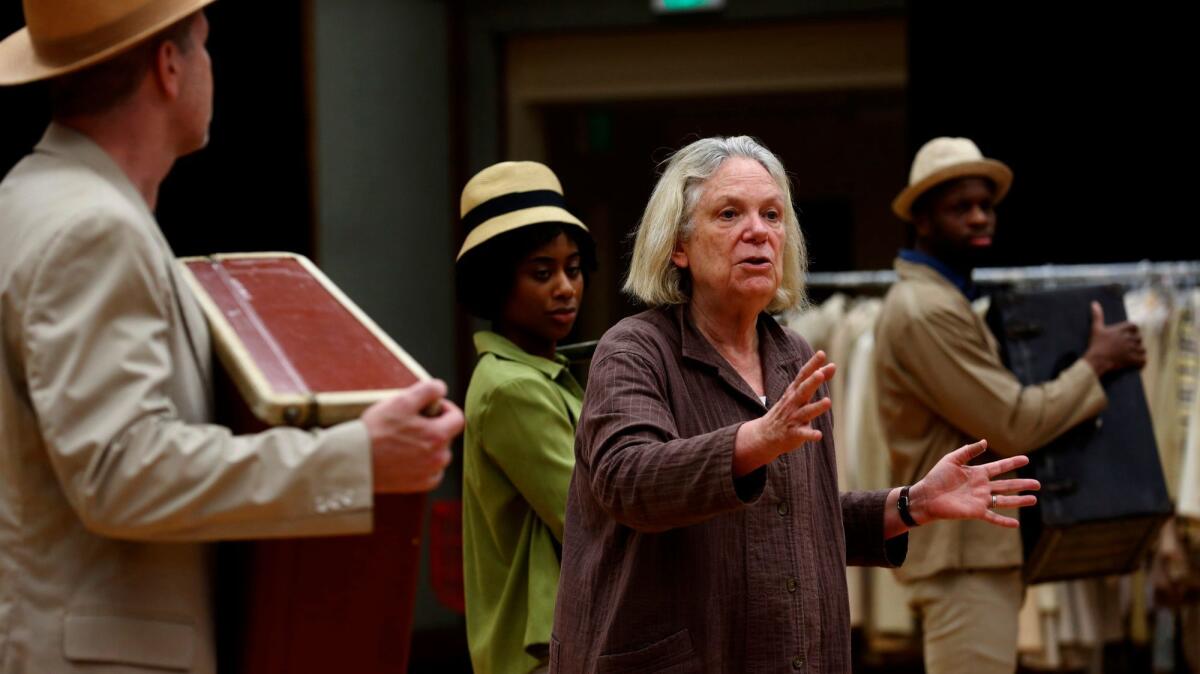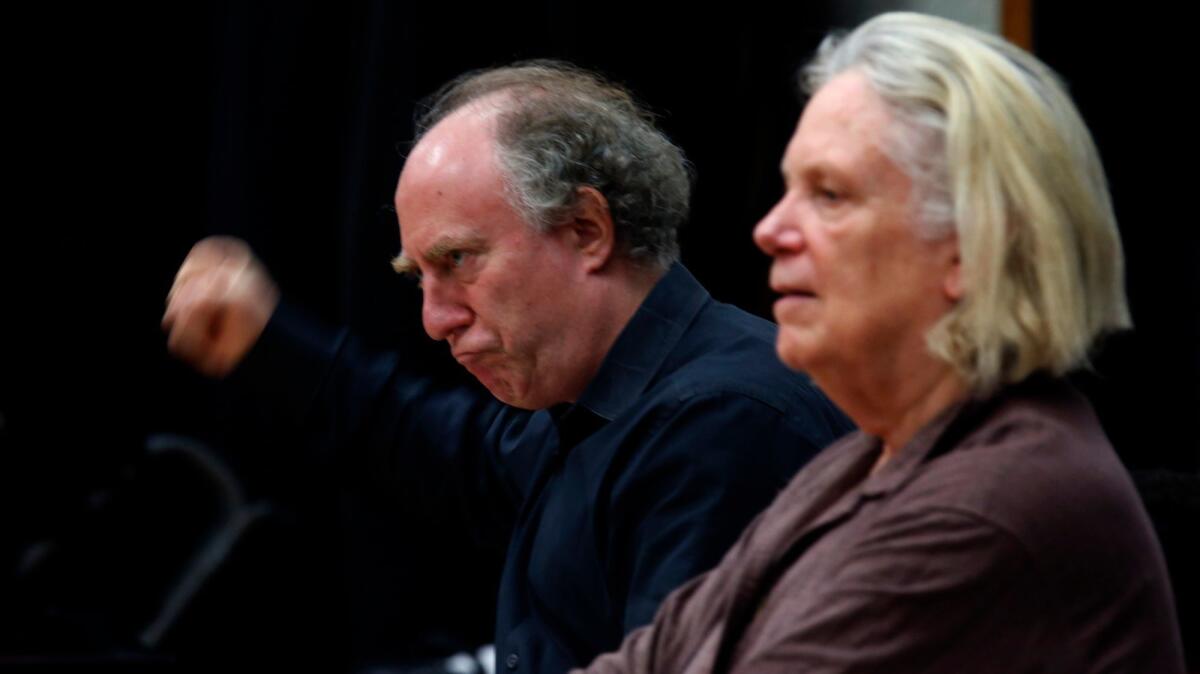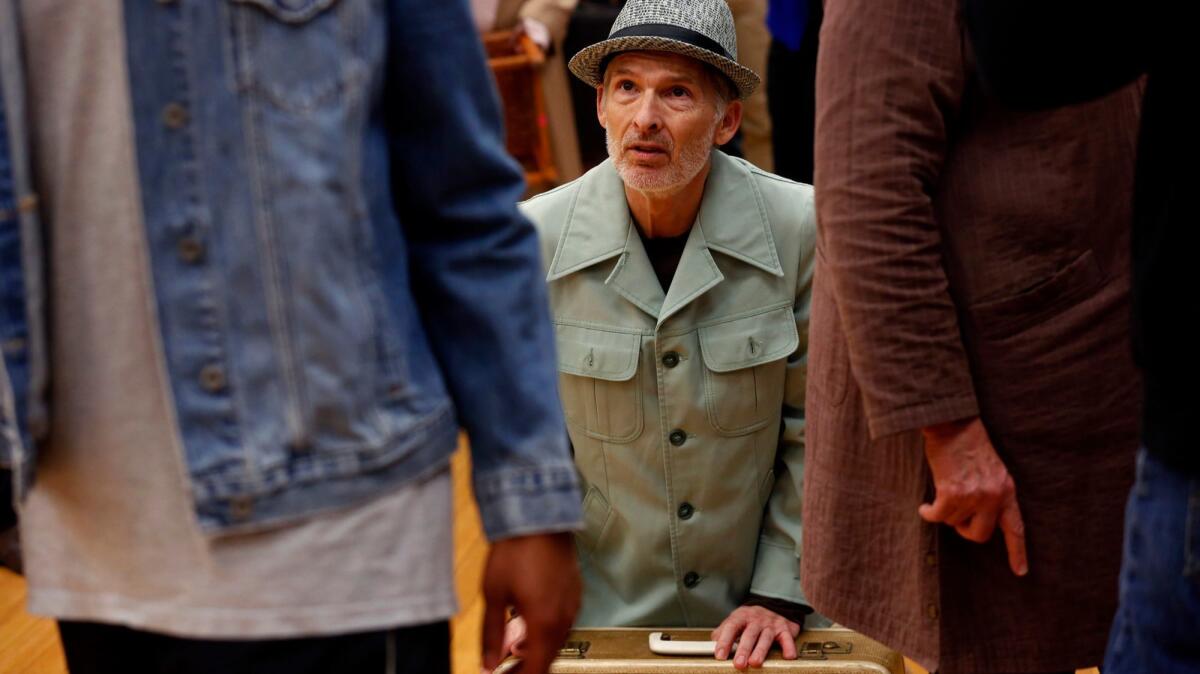A race-themed work not performed in L.A. for 67 years is back for a Black Lives Matter era

When Kurt Weill and Maxwell Anderson‚Äôs hit 1949 Broadway production of ‚ÄúLost in the Stars‚ÄĚ went on a nationwide tour, black audience members in many Southern cities were required to watch the musical from segregated balconies ‚ÄĒ a reality that must have felt particularly cruel given the work‚Äôs story line.
Set in apartheid-era South Africa, ‚ÄúLost in the Stars‚ÄĚ is based on Alan Paton‚Äôs novel ‚ÄúCry, the Beloved Country.‚ÄĚ Weill and Anderson chose the book as the subject of their operatic Broadway play specifically because its African story line so directly addressed the realities of a still-segregated America.
In Los Angeles, one of the more progressive stops on that 1950 tour, audience members were racially integrated. That performance ‚Äď‚Äď produced by the long-defunct Los Angeles Civic Light Opera at the historic Philharmonic Auditorium at 5th and Olive streets ‚Äď‚Äď is believed to be the last time L.A. audiences could see a professional production of ‚ÄúLost in the Stars,‚ÄĚ until now.
On Jan. 28 and 29, the Los Angeles Chamber Orchestra, in partnership with the Center for the Art of Performance at UCLA and the New York-based SITI Company, will bring ‚ÄúLost in the Stars‚ÄĚ to life in L.A. for the first time in 67 years.
The performances will take place at UCLA‚Äôs Royce Hall and will mark the first time the chamber orchestra has produced a fully staged musical theater work. The production will also serve as the climactic conclusion to the orchestra‚Äôs three-week ‚ÄúLift Every Voice‚ÄĚ series.
L.A. is not alone in neglecting Weill‚Äôs final composition for stage. Unlike Weill favorites like ‚ÄúThe Threepenny Opera,‚ÄĚ ‚ÄúLost in the Stars‚ÄĚ has rarely been produced. Worldwide, fewer than a dozen revivals have been staged during the last seven decades.
The orchestra’s music director, Jeffrey Kahane, said there were good reasons why the work has been largely shelved. For starters, it is a complex piece to cast and produce. A sort of hybrid play-musical-opera, it features equally demanding speaking and singing roles, and it traditionally requires a racially split cast (half black and half white).

‚ÄúI don‚Äôt really know what it is,‚ÄĚ SITI director Anne Bogart joked. ‚ÄúIt demands operatic singing, but it also demands acting in the way a Bertolt Brecht play would, and it demands great choral singing, too. I don‚Äôt really know whether it‚Äôs an opera or a musical or a piece of political activism. It‚Äôs really a hybrid. That‚Äôs just one of the things that makes it extraordinary.‚ÄĚ
L.A. Chamber Orchestra and Kahane are casting the operatic roles and handling the musical details, while Bogart and actors from her company are managing the theatrical elements.
Another reason why the work may have been passed on for so long: It is somewhat stylistically antiquated.
‚ÄúIt‚Äôs a Broadway show from the 1940s,‚ÄĚ Kahane said, ‚Äúand so there are certain aspects of it that I suppose one could take exception to because of the sort of old-fashioned nature of it. Some people might think it is a little overly simplistic or sentimental.‚ÄĚ
But the bones of the work ‚ÄĒ its story, subject and songs ‚ÄĒ stand the test of time, he said.
‚ÄúIt was an act of tremendous courage in 1949 for these two men, against all odds, to put on a Broadway play about apartheid,‚ÄĚ Kahane said. ‚ÄúIt is still a work of incredible power. The score has some unbelievably beautiful music, including the title song, which really is one of the greatest songs ever composed for Broadway.‚ÄĚ

Bogart said she ‚Äúflipped out‚ÄĚ when Kahane introduced her to the piece. She found the music extraordinary, the story heartbreaking and the issues it addresses incredibly pertinent.
‚ÄúIt is so much about Black Lives Matter,‚ÄĚ Bogart said. ‚ÄúI couldn‚Äôt imagine working on a more relevant piece. And the idea of doing it with a number of different communities ‚ÄĒ my SITI Company actors, Jeffrey Kahane and LACO, the really great African American opera singers and the community choirs ‚ÄĒ I couldn‚Äôt think of a better way to spend January in 2017.‚ÄĚ
The 2016-17 season marks Jeffrey Kahane‚Äôs last as LACO‚Äôs music director and this production, along with the rest of the ‚ÄúLift Every Voice‚ÄĚ series, is a passion project years in the making for the conductor-performer. At the heart of Kahane‚Äôs musical send-off is a devotion to collaboration and community.
Kahane said his orchestra owes a huge debt of gratitude to CAP UCLA executive and artistic director Kristy Edmunds, who connected him with Bogart and SITI and supported the project from Day 1.
‚ÄúThis really is an amazing three-way partnership,‚ÄĚ Kahane said. ‚ÄúAnd we have an unbelievable cast. Having the Los Angeles Chamber Orchestra in the pit is also going to lend it something extra special.‚ÄĚ

Bogart is equally as excited by the collaborative elements of this production and is hopeful that the sense of community fostered on stage will be infectious.
‚ÄúIt‚Äôs a piece that is made by many different communities,‚ÄĚ she said, ‚Äúand I hope that in the audience there will be people from many different backgrounds and interests. My hope is that this will bring us all together.‚ÄĚ
‚ô¶ ‚ô¶ ‚ô¶ ‚ô¶ ‚ô¶ ‚ô¶ ‚ô¶ ‚ô¶ ‚ô¶ ‚ô¶
‚ÄúLost in the Stars‚ÄĚ
Where: Royce Hall at UCLA, 340 Royce Drive, Los Angeles
When: 8 p.m. Jan. 28, 7 p.m. Jan. 29
Tickets: Start at $25
Information: (213) 622-7001, www.laco.org
SIGN UP for the free Essential Arts & Culture newsletter ¬Ľ
Follow The Times’ arts team @culturemonster.
ALSO
Rabbi Joachim Prinz and March on Washington inspires ‚ÄúI Will Not Remain Silent‚ÄĚ
Bramwell Tovey and Ray Chen deliver fun and fire for fans at Disney Hall
George Takei‚Äôs Broadway musical ‚ÄėAllegiance‚Äô breaks a theater-screening record
The one-man musical ‚ÄėThe Lion‚Äô leaps to the L.A. stage with songs of regret and hope
More to Read
The biggest entertainment stories
Get our big stories about Hollywood, film, television, music, arts, culture and more right in your inbox as soon as they publish.
You may occasionally receive promotional content from the Los Angeles Times.










